What’s the latest in health policy research? The Essential Scan, produced by the USC-Brookings Schaeffer Initiative for Health Policy, aims to help keep you informed on the latest research and what it means for policymakers. If you’d like to receive the biweekly Essential Scan by email, you can sign up here.
ACA Plans Expected to Break Even or Better in 2017 until Administration Interference

“Premium increases that insurers set in 2016 for the following year succeeded in stabilizing the individual market.”
-Paul Ginsburg, PhD, Director, USC-Brookings Schaeffer Initiative for Health Policy
Study by Matthew Fiedler
Critics of the Affordable Care Act (ACA) have alleged that the large premium increases for ACA-compliant plans in 2017 indicated that the system was in a death spiral. However, a new study from the Brookings Institution finds that this premium increase was a one-time market correction and that insurers were on track to break even or turn a modest profit on ACA-compliant plans for 2017. The study also estimates that, in a stable policy environment, premiums for ACA-compliant policies would only have increased by mid-to-high single digits on average nationwide in 2018. Fiedler concludes that actual and threatened actions by the Trump Administration are responsible for the substantially higher premium increases actually occurring for 2018. Full article here.
Hospitals Rewarded Financially for Representative’s “Yea” Vote on Medicare Modernization Act
Study by: Zack Cooper, Amanda E Kowalski, Eleanor N Powell, Jennifer Wu
In addition to creating Medicare Part D, the Medicare Modernization Act (MMA) of 2003 included a provision, Section 508, which created a pathway for hospitals to apply to have their Medicare payment rates increased. The authors of a new study find that hospitals in areas represented by Members of the House of Representatives who voted “Yea” on the bill were 1.4 times more likely to have their payment rates raised than hospitals in areas represented by Members who voted “Nay.” Hospitals that received Section 508 waivers experienced a 6.47 percent increase in Medicare payments, on average, with hospitals represented by members of Congress who voted for the bill receiving substantially larger increases in rates than hospitals whose Member voted against. The authors posit this price increase impacted hospital finances in a number of ways including the volume of Medicare patients treated and their case mix. Between the higher prices and higher volume, the authors found “that the 508 program led to a 25 percent per-year increase in hospital spending at impacted hospitals for seven years after the MMA was passed and that the average high 508 recipient hospital increased spending by $1.25 billion from 2005 through 2010 because of the payment increase.” This is the first study to empirically show how local political dynamics can increase federal spending on health care programs. Full article here.
Privatizing Medicaid Drug Benefit Would Drastically Decrease Drug Spending
Study by: David Dranove, Christopher Ody, and Amanda Starc
Proponents of market-based health care solutions believe that fostering competition among managed care organizations (MCOs) could help slow the increase of health care prices, thereby slowing total government spending on health care. A recent study argues that allowing MCOs to manage each state’s Medicaid drug benefit would decrease spending on pharmaceuticals by 22.4 percent. The authors are able to show that these savings are a result of MCOs’ ability to negotiate drug prices and steer patients toward more cost effective drugs and not by decreasing the number of prescriptions enrollees receive or “cream-skimming” profitable enrollees. These findings suggest that allowing private MCOs to administer publically assured health benefits could produce significant savings. Full article here.
The Brookings Institution is committed to quality, independence, and impact.
We are supported by a diverse array of funders. In line with our values and policies, each Brookings publication represents the sole views of its author(s).
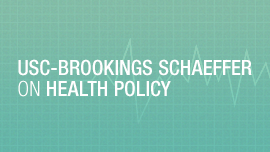
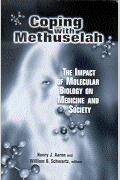

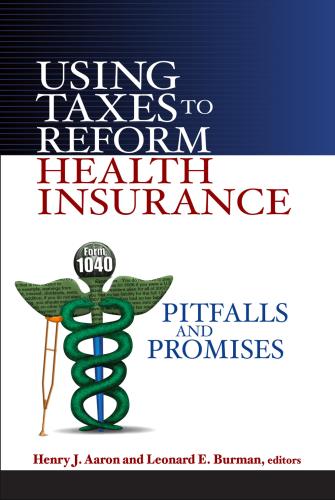
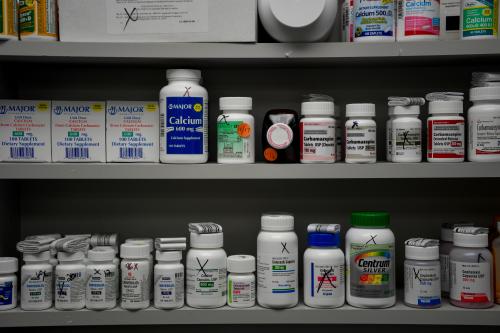





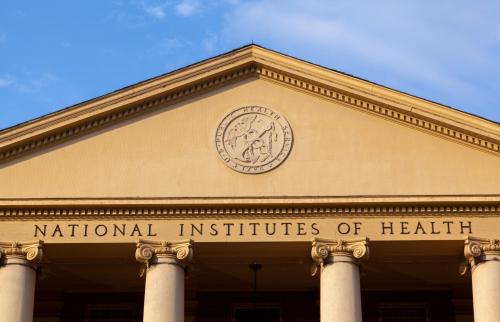
Commentary
The essential scan: Top findings in health policy research
November 2, 2017